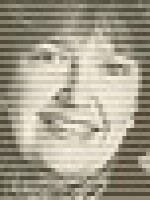As the chief U.S. weapons investigator in Iraq, David Kay leads a team of 1,200 men and women who are searching for weapons of mass destruction. An interim report, released three months into the search, notes that no evidence of chemical, biological or nuclear arms has turned up.
The report was widely viewed as a blow to President Bush, who cited Saddam Hussein's hidden arsenal as a chief reason for going to war in Iraq. Kay tells NPR's Linda Wertheimer that three months is insufficient time to get to "the truth" of the matter. And he says the media seems to be "glossing over" significant details in the report -- including a commitment by North Korea to supply Iraq with prohibited weapons, and evidence of "more than two dozen" weapons laboratories that were previously undeclared to the United Nations.
Wertheimer notes that Kay said before the war that he believed Saddam was hiding weapons of mass destruction. Asked if he still believes that, Kay says he's confident that the process he's leading will establish the facts.
"I'm not trying to prove a case," he says. "I'm trying to find the truth."
Kay tells Wertheimer that another six to nine months would give his team time to deliver a thorough report.
"We're having to deal with all of the behavior of Saddam, " he says. "Security behavior, the aftermath of a war... the insurgency that's going on now. And searching under those conditions is very difficult."
Though Kay's official role is as an adviser to CIA Director George Tenet, he says he feels no pressure to prove a case for the Bush administration.
"If the team comes to the conclusion there's nothing there, it's not something I'm going to apologize for," he says.
Copyright 2022 NPR. To see more, visit https://www.npr.org. 9(MDAzMjM2NDYzMDEyMzc1Njk5NjAxNzY3OQ001))






